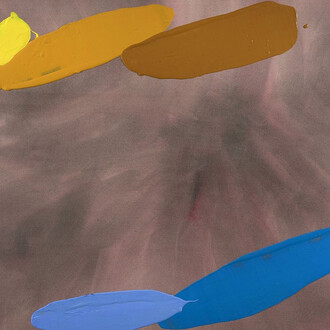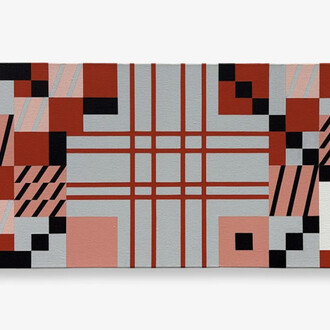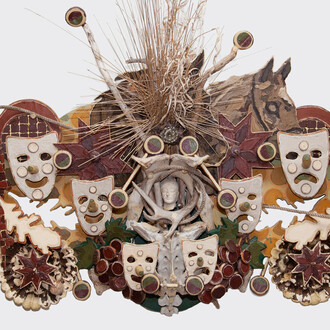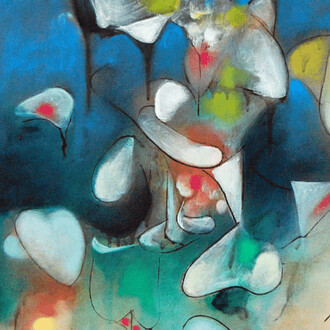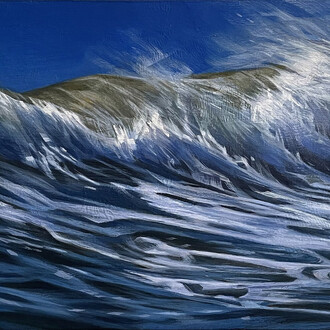Friedman Benda is pleased to present OoNomathotholo: ancestral whispers a new body of work and the third exhibition with the gallery by South African artist, healer, and spiritual leader, Andile Dyalvane. The public opening will be on September 5th at 515 West 26th Street in the presence of the artist.
Taking its title from the intergenerational whispers of the Xhosa people, the works in OoNomathotholo carry notes of ancient experience passed down through time. Acting as a conduit, Dyalvane intermingles communal legacies with movement, flow, and labor in his daily creative expression. The new works show his relentless re-engagement with the language of his past and the reality of his present, by creating complex visual metaphors of courage, teaching, and possibility through craft, form, and imagination.
Comprising a series of large and powerful vessels, crafted during a period of personal and communal loss, the works embody a history of trauma and grief while offering a perspective of harmony and rejuvenation. These works were made over a period of two years in Dyalvane’s studio in Cape Town and during a residency in Austria. Several of the works on view were presented at the historic Chatsworth House in the UK in 2023 in the exhibition Mirror mirror: reflections on Design at Chatsworth.
Returning to a familiar lexicon, Dyalvane imparts the spirit and symbolism of cycles in nature, shifting landscapes, flowing streams, cliffs, tributaries, valleys, peaks, and wildlife. But it is in the clay itself, drawn from the rivers in and around his place of birth (the village of Ngobozana in the Eastern Cape), where the viewer is struck by immediate and visceral communication with the land and the whispers of his ancestors.
Each vessel tells a story; they are torn, lacerated, and punctuated with overtly executed marks and groves. Reminders of the Xhosa practice of scarification live in the carvings and incisions but there are new directions too. One hallmark is the introduction of a vibrant color palette indicative of wildflowers and torched earth. Another is the total structural collapse of his vessels in places as a metaphor for resilience. Embracing these “happy accidents” of fallen, drooping, and crumbled surfaces as points upon which to build strength, Dyalvane is able to balance his compositions and build anew. It is precisely at these junctures that the loss of brothers, sisters, and cousins are mourned and healed, and the historic erosion of landscapes and separation from ancestral lands are processed.
Framed by the spirit and energy of a village kraal (enclosure) or ceremonial gathering, the exhibition presents these monumental vessels in a circle, hovering around a central totem. The statuesque figure is further ensconced in a horde of small drinking and cooking pots – each of which has been charred in a symbolic firing. As Dyalvane has said, “it’s the spirit of fire without having a fire there and the idea of cleansing.” Symbolizing his own practice of gifting a small pot to a new homestead each time he visits his village in the Eastern Cape, Dyalvane seems to be invoking his communal gatherings where all are invited to take part, to reinforce connection, to energize and engage. After all, bringing collective healing through these objects of exquisite craft and visual storytelling, is this ceramic healer’s gift to us.
Prior to the opening from 5-6pm on Thursday, September 5th, there will be a book signing in collaboration with Almas Art Foundation upon the occasion of the publication of Andile Dyalvane: Ancestral wisdom Ubunzululwazi Lwabaphantsi.










